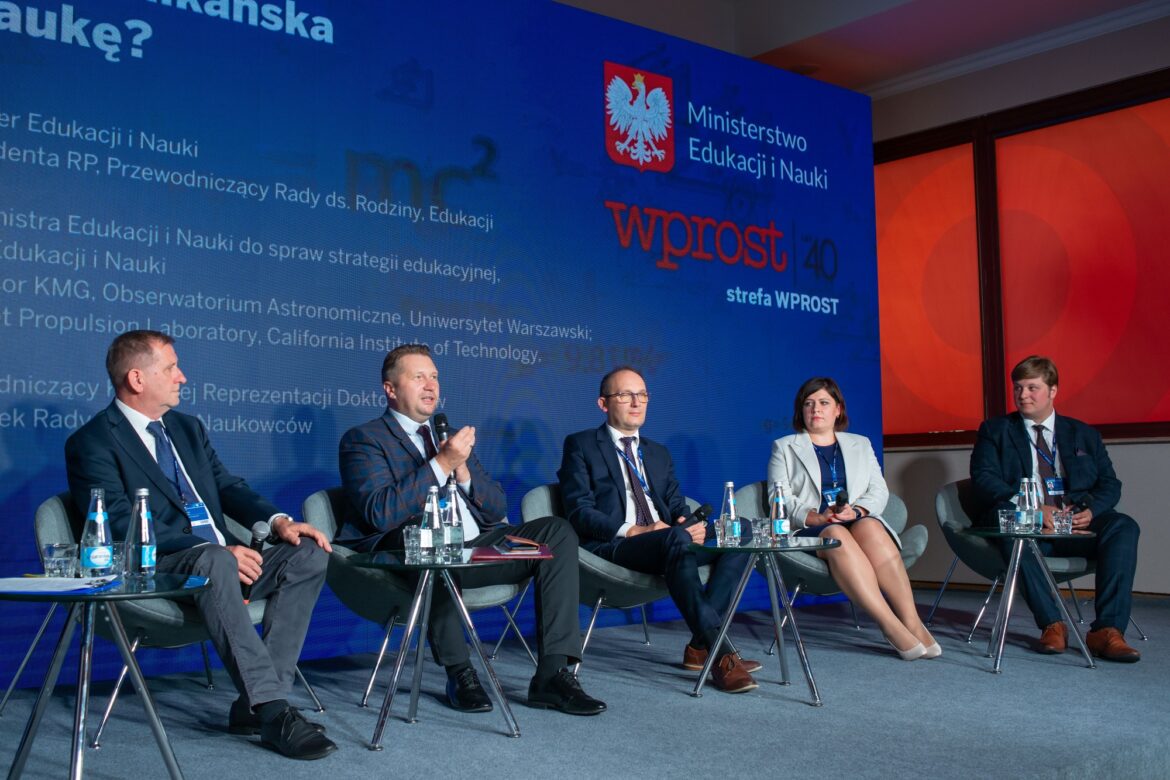Participants in the debate discussed the assumptions, main objectives and expected results to be achieved by the new institution. This was the first such important discussion after the President of Poland signed the act on the Copernican Academy.
“The Copernican Academy will not replace any institution in Poland. It is meant to be a strengthening of Polish science and to showcase Nicolaus Copernicus as the most famous Polish scientist,” said the head of the Ministry of Education and Science”, Przemysław Czarnek. “The Copernicus Academy will educate elites who in the future will take responsibility for the fate of Polish society and Polish science”, he added.
The chairman of the National Representation of Doctoral Students, Jarosław Olszewski indicated that there is room in the scientific and academic community for the creation of the Copernicus Academy. There are undeveloped areas that need to be filled, such as short-term trips abroad. The success of the Copernican Academy depends on its grant offer, which will respond to the needs and expectations of young scientists.
During the debate, Minister Czarnek emphasised that the Copernican Academy will be a place of cooperation between Polish and foreign scientists. It will also strengthen scientific and research initiatives of Polish scientists and scientists of Polish origin who work in foreign scientific units.
The aspect of internationalisation of Polish science in the context of the creation of the Copernican Academy was also highlighted by the advisor to the President of Poland, Professor Andrzej Waśko, who pointed out that there are many Polish scientists working in universities around the world. However, there is no centre to bring together these dispersed resources.
Adrian Andrzejewski





